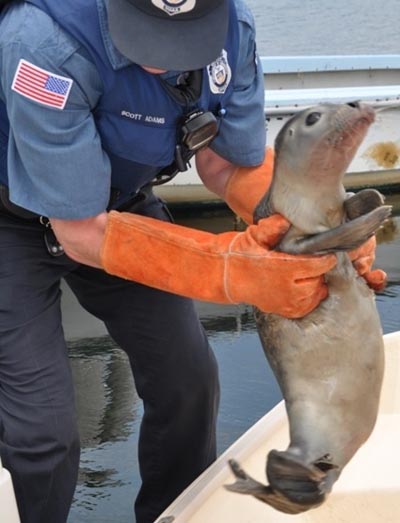Fish and fish products must meet protection standards comparable to the U.S.
Nations exporting fish and fish products to the United States will have to meet fishing standards for protecting marine mammals equal to those American fishermen follow, under a final rule published today by NOAA Fisheries.

Nations exporting fish and fish products to the United States will have to meet fishing standards that protect marine mammals, like bottlenose dolphins, equal to those in the U.S. (Image credit: NOAA)





